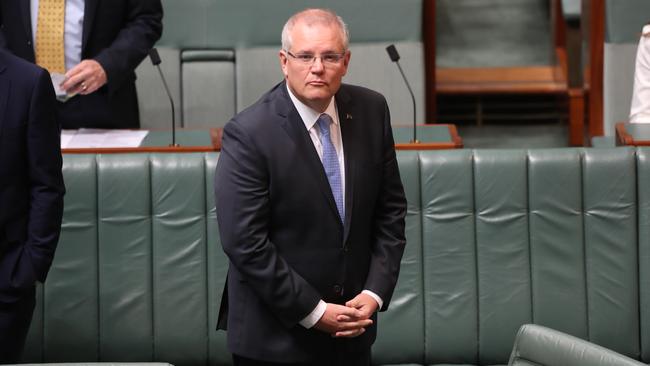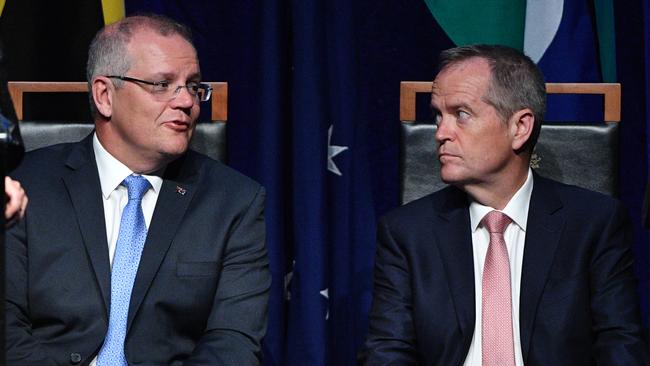
What are the options for the Morrison government after the probable loss of the seat of Wentworth last weekend? Assuming that it has about six months longer to govern and taking into account the perils of running a minority government, what should be the priorities for Morrison and his fellow parliamentarians?
When interpreting the result, be clear that Wentworth has very little in common with the rest of Australia. The residents are mostly high-income, educated and wealthy. A high-density urban area, it has easy access to the CBD as well as many other resources needed for a quality standard of living.
There are a small number of other electorates that are similar to Wentworth, in Sydney and Melbourne, but most Australians can only dream of the privileged existences of Wentworth residents.
The concerns of these Australians are much more prosaic: how to pay the mortgage or rent, how to cover the weekly bills, can I get to work on time, who’s going to pick up the kids, how are the ageing parents getting on, and so on.
They haven’t really given climate change a second thought or wondered whether Australia’s embassy in Israel should move from Tel Aviv to Jerusalem. They don’t have time to watch the ABC and they listen to commercial radio in the car while stuck in traffic. They would like to see their footy team win the flag next year.
A time will come, and it is arguably not too far off, when the Liberal Party has to accept that inner-city seats that it has traditionally held may be lost forever. Either high-profile independents or Greens candidates will over time snare them: think Wentworth, North Sydney, Kooyong, Higgins, and there will be little hope of a Liberal Party candidate succeeding in the foreseeable future.
On this basis, the way forward for the Morrison government is to run with policies that benefit and appeal to Australians who live in the outer suburbs and in regional areas, a bread-and-butter style of politics focusing on national issues rather than global ones.
Skipping pretentious mumbo-jumbo about climate change, identity politics and the benefits of multiculturalism, the Morrison government would be wise to concentrate on the everyday concerns of average Australians. Most Australians are just trying to stay afloat and do the best they can for their families and communities.
Given the tight parliamentary numbers, including the recalcitrant Senate, the best course of action is to concentrate on non-legislative policy options.

There are many decisions that can be made without recourse to new laws. But more to the point, the prospects of securing passage through the Senate of a number of bills that have already passed the lower house or are ready to be presented to the house are low.
Take a number of industrial relations bills that have been hanging around for some time. Some of these actually amount to housekeeping, such as getting rid of the laborious and unnecessary four-year review of modern awards and allowing enterprise agreements to be certified in the context of minor paperwork errors.
The trouble is that Labor is so fixated on the issue of penalty rates — recall that minor changes were ordered by the Fair Work Commission — it has tried to amend these bills by including a provision for penalty rates to revert to their previous status. This is unacceptable to the government and has been duly rejected.
Some superannuation bills have passed the house, but have not been voted on by the Senate.
They include changes to the governance arrangements of industry super funds that would ensure that a third of the trustees are independent as well as the chair.
Because of the obsession of Mathias Cormann, government leader in the Senate, to have the company tax cuts made law (he succeeded only for companies with turnover below $50 million), many bills, including those related to superannuation, are yet to be presented.
In retrospect, this was a poor tactical choice. At least some of the industrial relations and superannuation bills could have become law by negotiating with the Senate crossbench. And in the end, the government dropped its commitment to cut company tax rates for the largest companies in any case.
There is an opportunity to set out some policy decisions with the release of the Mid-Year Economic and Fiscal Outlook. This should happen early in December.
While the budget bottom line has been improving, both because of surging company and personal income tax receipts as well as lower-than-expected government spending, it is unlikely that the government will seek to bring the budget into surplus this financial year. The plan is for the budget to return to slight surplus in 2019-20.
A number of new spending items has been announced, including on non-government schools, to sort out the Catholic school problem, and compensation to the states for fixing up the GST distribution problem to placate Western Australia. The decision to bring forward company tax cuts for smaller firms will also be factored into the MYEFO.
We should expect a number of other election sweeteners. While the Morrison government will seek to highlight its success in carefully managing the budget and returning the books to the black, it has no intention of giving Labor a free kick.
It is keen not to repeat the past pattern established at both the federal and state level of Coalition governments prudently managing fiscal affairs only to have new Labor governments exploit these solid fiscal positions and spend big.
As part of the MYEFO, the government may announce a cut to the permanent immigration program. It stands at the maximum figure of 190,000 per year, locked in for the three years.
One thing that the Morrison government could do, in both a practical and symbolic way, is to cut migration. For those ordinary punters who live in the outer suburbs and who are stuck in traffic day after day or squeezed into overcrowded trains or buses, this could make a real difference.
If you are a betting person, the odds of the Morrison government securing another term are long indeed. But there are things that can be done that will appeal to voters in the seats that are the real future of the Coalition. Pandering to the exceptional and indulgent preferences of the privileged voters of Wentworth would be the worst possible choice.




To join the conversation, please log in. Don't have an account? Register
Join the conversation, you are commenting as Logout